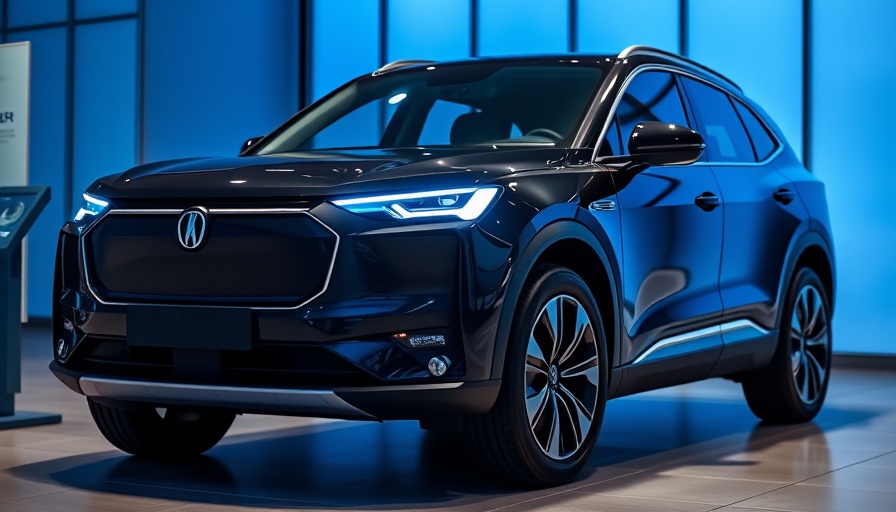
The Rise of Hybrid Vehicles in 2025
As the automotive industry continues to innovate, hybrid vehicles are gaining increasing attention among consumers in 2025. These gas-electric cars and trucks provide not only savings at the fuel pump but also align with the growing consumer preference for environmentally friendly options. Models such as the 2025 Volvo XC60 Hybrid and the 2026 Kia Sportage Hybrid are examples of how manufacturers are expanding their offerings to cater to a variety of preferences.
Why Buy a Hybrid Car or Truck?
Deciding to purchase a hybrid vehicle can be a significant choice, and understanding the benefits can guide potential buyers. At lower speeds, hybrids often outperform traditional gasoline cars, yielding impressive fuel efficiency through features like regenerative braking. However, there’s a catch; at higher speeds, hybrids may not deliver the expected mileage benefits. This dual characteristic can be especially important depending on your driving habits—city or highway. For example, utilizing the EPA’s fueleconomy.gov website can help potential buyers evaluate their specific payback period when comparing hybrid and non-hybrid models.
Standard Hybrids vs. Plug-In Hybrids: What's the Difference?
While standard hybrids combine a traditional internal-combustion engine with an electric motor, plug-in hybrids offer an additional charging option. This extra functionality allows for longer trips relying solely on electric power, meaning that your driving routine can greatly influence which model is more suitable for you. If you live in an area where charging stations are readily available, a plug-in may be a savvy choice for maximum versatility without sacrificing fuel efficiency.
The Cost Factor: New vs. Used Hybrids
When it comes to cost, the initial investment for hybrid vehicles tends to be higher than traditional cars. While the price premium associated with hybrids may take a few years to recover through fuel savings, it’s essential to remember that buying used can offer significant savings without sacrificing the latest features. Models like the Toyota RAV4 Hybrid and Honda CR-V Hybrid retain their value and offer excellent fuel efficiency, making them viable options for budget-conscious shoppers.
Incentives to Consider: Tax Breaks and More
Many governments and states provide tax incentives or rebates to encourage the adoption of hybrid and electric vehicles. As a prospective buyer, it’s crucial to research available incentives in your area, as they can significantly reduce the total cost of your new hybrid car or truck. In some places, you may also qualify for access to HOV lanes or other perks, amplifying the value of your investment.
Common Misconceptions About Hybrid Cars
Despite the numerous advantages of hybrid vehicles, several misconceptions still linger. Many people believe hybrids are solely for eco-conscious individuals or that they lack power and performance. This couldn’t be further from the truth. Today’s hybrids come in powerful configurations that cater to varying driver preferences, from family-friendly SUVs to performance-oriented cars that boast impressive acceleration.
Conclusion: Making the Right Choice for You
With a wealth of hybrid options available in 2025, understanding the unique features and benefits of both standard hybrids and plug-in variants is essential for making a well-informed decision. Whether you prioritize fuel savings, environmental impact, or versatility, there’s a hybrid vehicle that can meet your needs. Don’t forget to consider government incentives and detailed comparisons between models to truly gauge the value of your investment.
 Add Row
Add Row  Add
Add 




Write A Comment